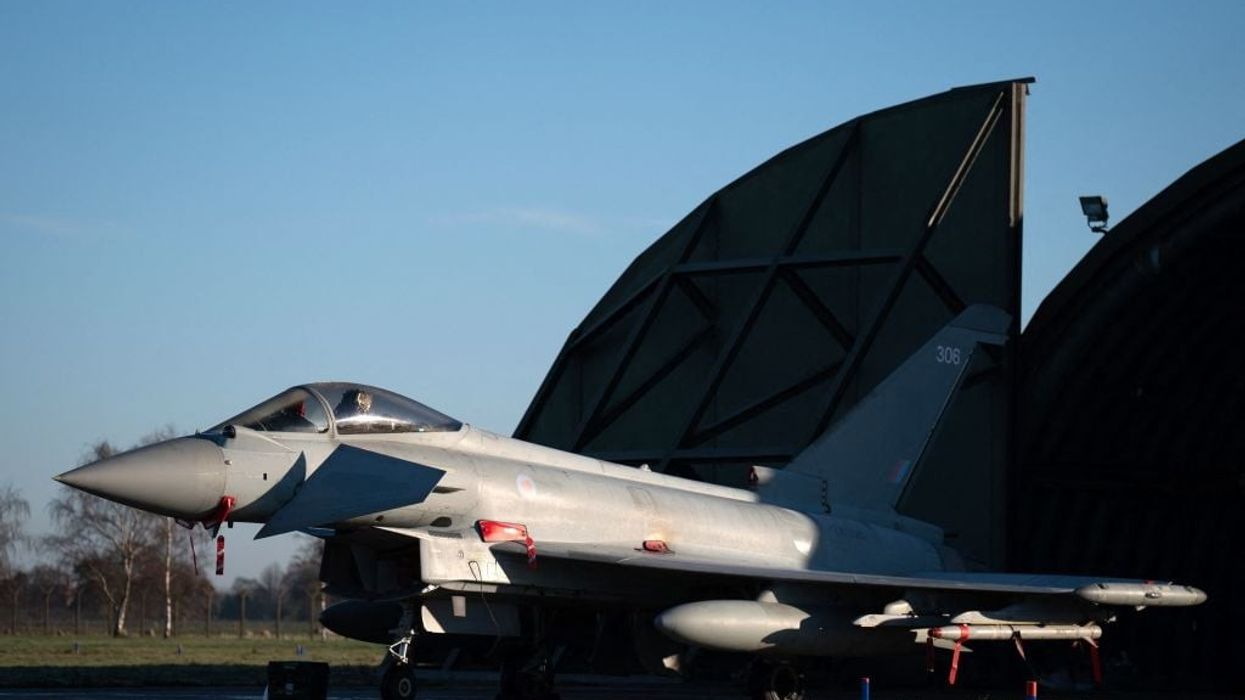THE Royal Air Force on Thursday (17) scrambled two Typhoon fighter jets to intercept an Air India aircraft that received a bomb threat and the plane later landed safely in London.
The bomb threat was received for the Air India plane from Mumbai to London, an airline official said.
"We can confirm that RAF Quick Reaction Alert Typhoon fighter aircraft from RAF Coningsby were launched this afternoon, to investigate a civilian aircraft," a Royal Air Force spokesperson said.
Following an uneventful interception the aircraft was released to continue to its original destination under the direction of civilian air traffic control, the spokesperson said.
Further, the spokesperson said the incident is now being handled under the control of civilian authorities.
The airline official said the flight landed safely at London Heathrow airport.
According to reports, the Air India Boeing 777, travelling from Mumbai to London, sent out an emergency signal while flying over the North Sea, prompting a swift military response.
At 12.18pm, the aircraft squawked a 7700 emergency signal, typically used to indicate an urgent situation. Within minutes, two RAF Typhoons were launched from RAF Coningsby in Lincolnshire.
The plane, carrying hundreds of passengers, circled above East Anglia for less than an hour, before it ceased transmitting the emergency signal at 12.55pm.
What is a sonic boom?
As the Typhoons raced to intercept the Air India flight, they reached supersonic speeds, causing a loud sonic boom that was heard across parts of East Anglia.
A sonic boom occurs when an aircraft flies faster than the speed of sound, which is roughly 761 mph at ground level. The noise is the result of shockwaves created as the plane breaks through the sound barrier.
Norfolk Police later reassured residents that the noise heard was not an explosion, but the result of the RAF jets flying at supersonic speeds for operational reasons.
An RAF spokesperson confirmed the deployment of Quick Reaction Alert Typhoon jets to investigate the civilian aircraft following the bomb threat.
While Air India and the Metropolitan Police have yet to release further statements, the situation has been described as resolved without incident.
This incident follows a series of bomb threats targeting Indian airliners in recent days. On Tuesday (15), an Air India flight from New Delhi to Chicago made an emergency landing in Iqaluit, Canada, after a security threat was posted online.
Similarly, two Singapore fighter jets were scrambled to escort another Air India flight to Changi Airport following an emailed bomb threat.
Earlier this week, an Air India flight from Mumbai to New York was diverted to Delhi due to a hoax bomb alert, and two IndiGo flights were delayed in Mumbai because of similar threats.
Authorities continue to investigate the source of these threats.
(with inputs from PTI)





